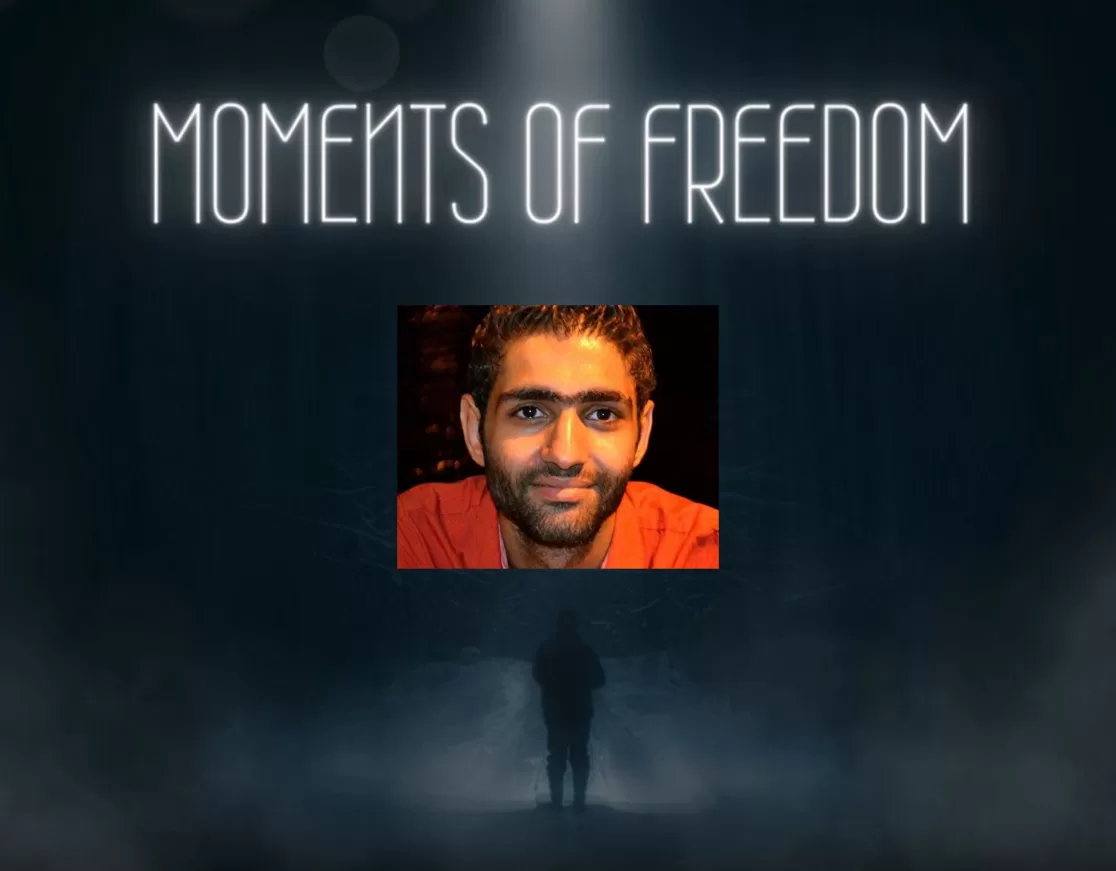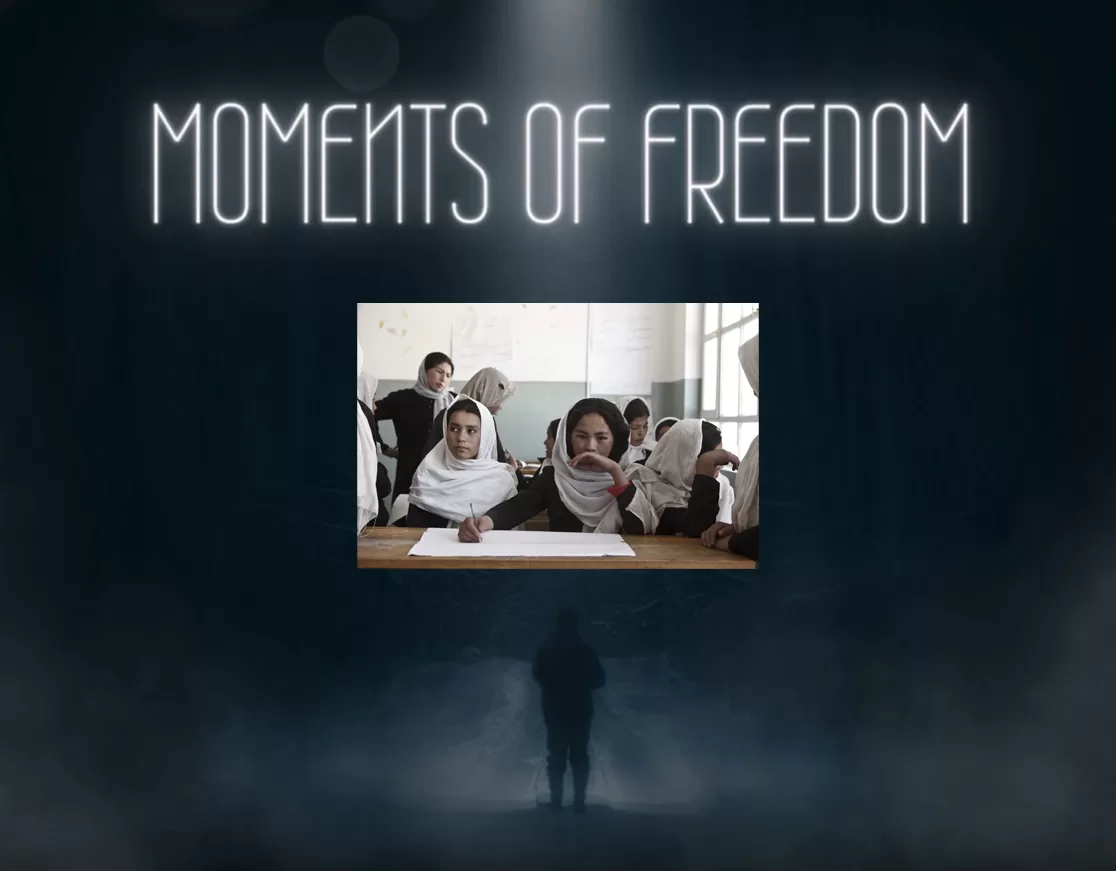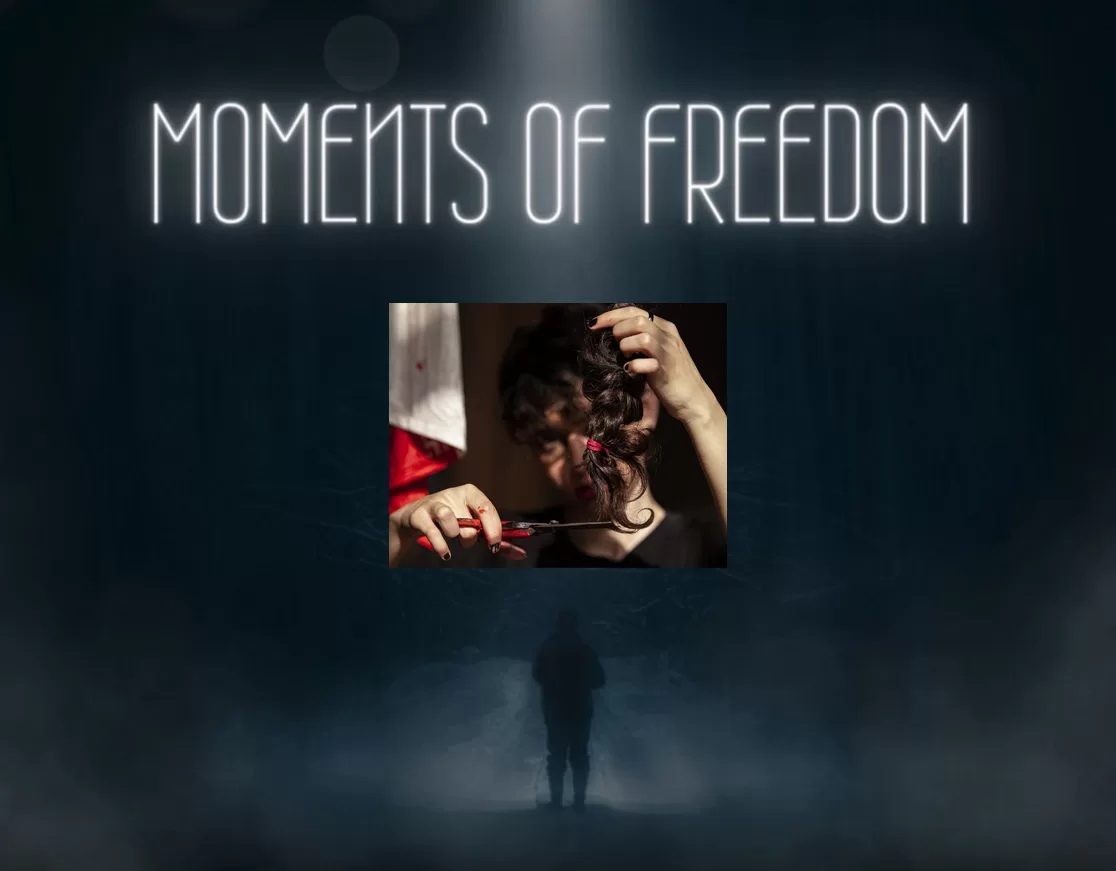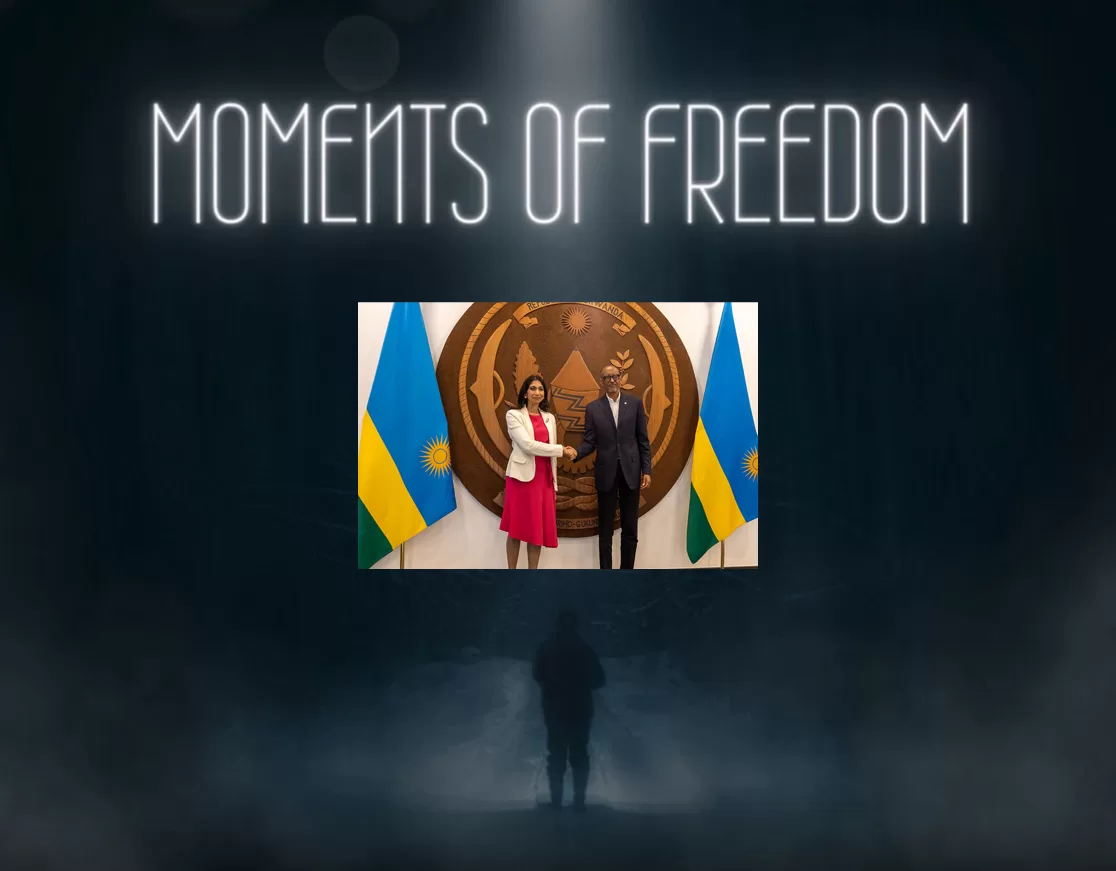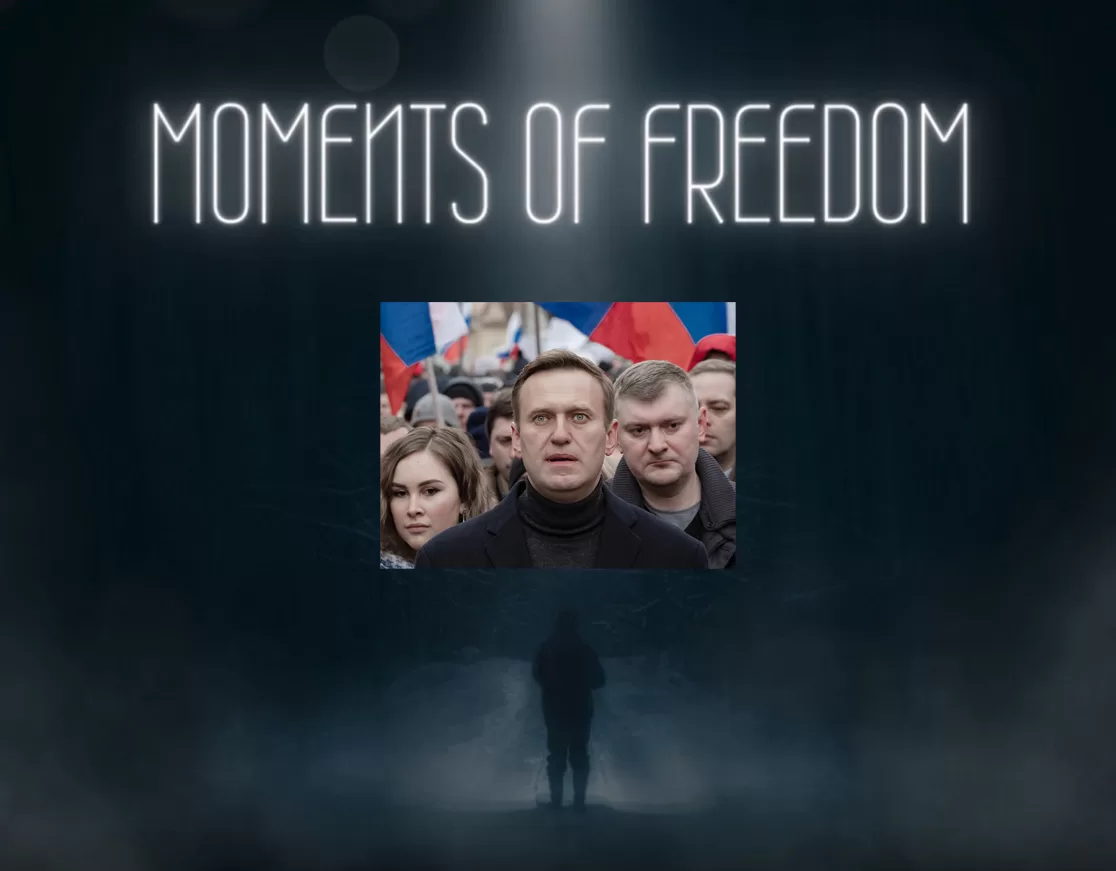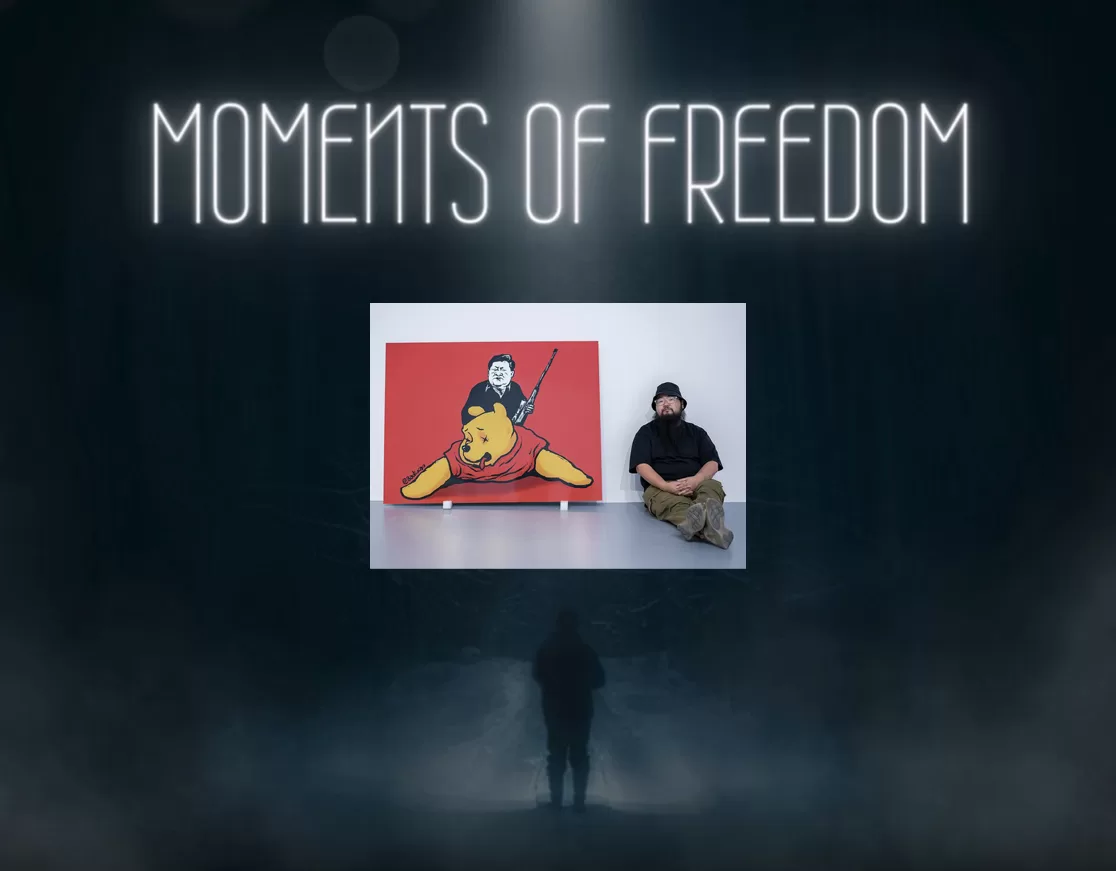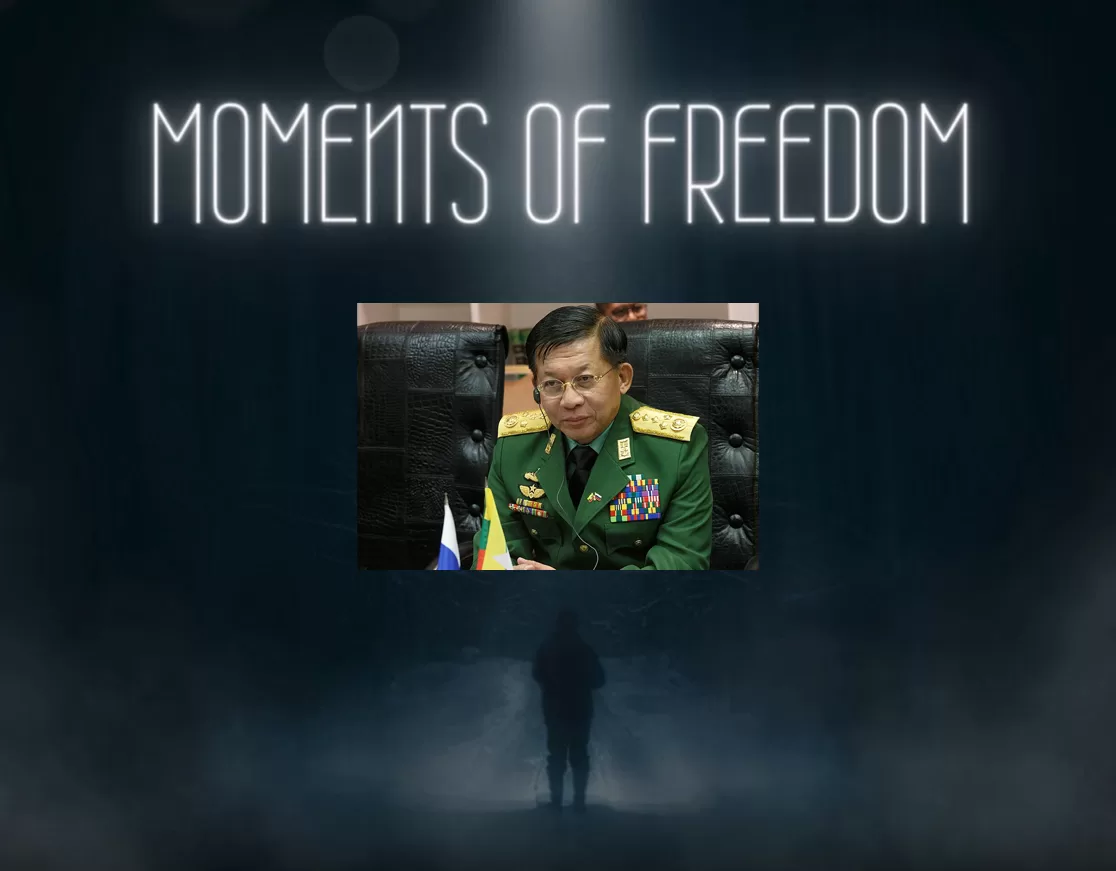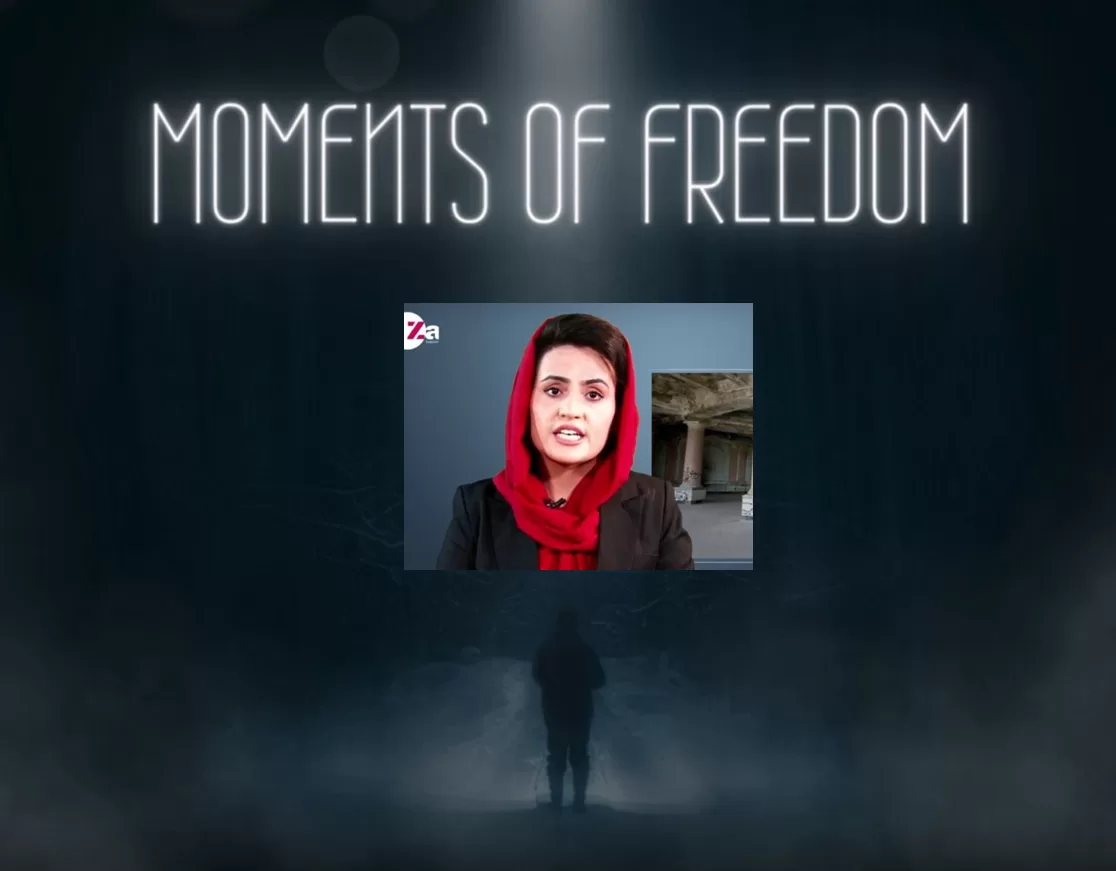4 Dec 2023 | Afghanistan, Burma, China, Egypt, Iran, Poland, Russia, Rwanda
Moments of Freedom was Index on Censorship’s 2023 year-end campaign where we asked our readers and supporters to vote on the moments during the past twelve months that have given them hope that the world is not as bad as it sometimes feels.
Index’s staff and board looked back over the year and highlighted their moments where freedom of expression has been strengthened or celebrated. This could have been through the introduction of new legislation supporting free expression, the release of a prisoner of conscience or the escape of a dissident from tyranny to a safe third country.
Egyptian blogger Abdelrahman "Moka" Tarek reaches safety
Launch of the Begum Academy
First anniversary of women's protests in Iran
Rwanda declared "not a safe country"
Alexei Navalny's reaction to latest charges - Russia
Badiucao exhibition in Warsaw
Silent strike protests in Myanmar
Release of Mortaza Behboudi and Matiullah Wesa
Afghan TV present Spozhmai Maani finds refuge in France
17 Jul 2023 | Afghanistan, News
The words could not have been starker. “My money is finished. I don’t have food to eat at home. I am exiled to a country worse than Afghanistan. I have no other choice than to sell my kidney.” But these words, which came from an Afghan journalist living in Pakistan, were not unusual. For a growing number of Afghans selling a kidney has, perversely, become an essential way to survive.
Afghanistan has been gutted. At the start of 2022 the UN reported that the country was on the brink of “a humanitarian crisis and economic collapse” and the situation has only worsened. It’s hard to keep track of the increasingly grim reality there, from stories of schoolgirls being poisoned, news of a spiralling mental health crisis, images of people starving and, for that matter, images of people’s post kidney-removal scars.
Among the worst affected are Afghan journalists. The fall of Kabul meant the fall of independent media. An industry that took years to nurture and grow vanished overnight, leaving most without a job and a stable source of income. At the same time the Taliban’s relentless attack on dissent has made these people a primary target. Those who are left behind find themselves faced with both starvation and assassination.
One journalist wrote to me last month. He said he scours the backstreets of Kabul looking for scraps to sell. He sent me pictures of himself before August 2021. He looks relaxed and is wearing a sharp suit and jeans. Some of the images are of him behind a camera. Others show him speaking at a conference for women’s education, something he tells me was one of his proudest moments – championing the rights of girls and women which today are null and void. We communicate on an encrypted messaging app, and even then we delete everything in case his phone falls into the wrong hands. The journalist is trapped, his options limited. He ends the message asking for help.
Those who have escaped are not necessarily faring better, as the man considering selling his kidney attests. The Taliban’s reach spreads to neighbouring countries. Afghan journalists must constantly look over their shoulder, and contend with the added stress of visas, which are not always guaranteed despite the threats they face at home. Threats to be sent back to Afghanistan or imprisoned are commonplace and bribery is rife.
A couple of months ago I was messaging with an Afghan journalist in Pakistan. “It’s more than one year that I’m without job and any income with 6 months baby boy. My economical situation is too bad, I really need to your help and kindness,” she told me. Attached to the message were scans of her press credentials and passport photo, information to help verify that she is in fact who she says she is because in the middle of all this people are being impersonated. Goodwill runs low. The woman made the trip over the border while pregnant. Her baby is unwell. It’s not serious if treated quickly, only she doesn’t have the cash for the surgery. She can’t work on her visa. Besides, she’s looking after a poorly baby. Can I help?
I could list endless conversations like these. Since August 2021 the Index inbox has been flooded with people asking for assistance. Back in September 2021 we set up a messaging group for Afghan journalists. What started off as small today has over 40 people in it. Sometimes positive news is shared – an award won, for example, to a chorus of congratulations. Other times it’s the worst kind of information - news of an Afghan journalist who died in a boat off the coast of Italy and who many in the group knew. Most of the time though it’s information on how people can get funding and get out.
The worst thing is that none of the journalists in the group see the UK as a viable option right now. It’s a ridiculous situation given that in August 2021 then prime minister Boris Johnson announced the creation of the Afghan citizens resettlement scheme (ACRS), with the aim to help resettle 20,000 Afghans in the UK. ACRS was meant to give priority to those who stood up for democracy and specifically mentioned journalists.
Almost two years on and the number of Afghan journalists we’ve helped is negligible. This despite the fact that immigration to our country has increased. Granted we might not feel the threat of proximity or sense of commonality that has driven our policy with Ukrainian refugees. And granted we might not feel the weight of history, as we did when we successfully opened up the BN(O) scheme for those from Hong Kong. But Afghanistan is still part of our story. British troops were involved in Afghanistan from the US-led invasion in 2001 right through to the Taliban takeover. We encouraged the transformation of the country along democratic lines.
The UK government has been called out on its poor record. Last December eight Afghan journalists who worked for the BBC and other British media organisations challenged the government’s refusal to relocate them in a High Court hearing. They said they had “worked alongside and in support of the British government's mission” in Afghanistan and as a result put their lives at risk. Their lawyer, Adam Straw, said the British government had “betrayed the debt of gratitude” owed to his clients by refusing to relocate them. Since this hearing their visa applications have been reopened – a positive step – only it shouldn’t take a court case to get here.
Index wrote to home secretary Suella Braverman in March to ask about progress on ACRS. Months on and again no response or progress. Meanwhile France has just issued visas to two people in our network. They arrived in Paris this month. It’s a relief to know they are now safe, only these cases should be the norm, not the exception, and the UK should be welcoming such individuals too.
Ultimately we’ve turned our back on Afghan journalists in their darkest hour. There is still time to change course, but we must act – now.
Click here for more information on Index’s upcoming event Those Left Behind: A Night for Afghan Journalists
16 Jun 2023 | Brazil, News, United Kingdom
The temperature is rising, and not just for former British Prime Minister Boris Johnson. The heat has increased in the UK in more literal ways, leading the National Grid to fire up a coal power plant to create enough energy to power all our air-con units. The irony of this is lost on no-one, particularly environmental campaigners.
No, we haven’t gone off on an environmental tangent. There are plenty of free speech issues stemming from the climate crisis, as we have reported many times in the past. Yesterday morning some of the very people who are protesting dirty energy were dealt another blow. After Home Secretary Suella Braverman gave further clarification that “serious disruption” included slow walking protests that block roads, the amendments to the Public Order Act, which further lowers the “serious disruption” threshold, came into effect. The Home Office said: “While the right to peaceful protest remains a cornerstone of our democracy, causing traffic to halt, delaying people getting to work and distracting the police from fighting crime will not be tolerated.”
Disruptive environmental groups have been targeted in government legislation before (à la the Public Order Bill policy paper’s specific reference to Extinction Rebellion), and this latest example is no different. Braverman said: “The public are sick of Just Stop Oil’s selfish and self-defeating actions, which achieve nothing towards their cause.”
Human rights barrister Adam Wagner, commissioned by Friends of the Earth, gave his legal opinion on the matter, highlighting “serious implications for the right to freedom of speech and protest”. He said there will be a chilling effect on people who want to attend protests, “because people who are deciding whether to organise or attend a protest would not be able to predict with sufficient certainty whether the police are likely to impose conditions”. Human rights group Liberty, meanwhile, is launching a legal action over the legislation, which they describe as being “brought in by the back door”.
Groups like Just Stop Oil do indeed divide opinion. But they cannot be used as an excuse to further erode public assembly and protest rights. Imagine a future controlled by the very worst of governments — now imagine how they could use this law.
Last week also was the anniversary of the deaths of British journalist Dom Phillips and Indigenous expert Bruno Pereira, who were killed while reporting in Brazil’s Javari Valley in the Amazon last year. There were memorials across the world. At an event at Rich Mix in London, people not only remembered their lives, they also shone a light on the threats that Indigenous people continue to face in the Javari Valley, as they stand in defence of the rainforest.
Back in autumn 2021 our special report examined the silencing of the planet’s Indigenous peoples. We reported on how environmental defenders in Ecuador were criminalised, threatened and attacked and Australia’s history of selective listening when it comes to First Nations voices. Indigenous communities are just as at risk now as they were then — and as they have been for centuries.
As the mercury levels keep going up globally and defenders of the planet keep raising their voices, we have not forgotten about the threats they face, and the importance of their voices being heard.
18 Apr 2023 | Afghanistan, FEATURED: Francis Clarke, News
Last Thursday, human rights organisation Anotherway Now hosted a screening of the Sky News documentary ‘Defying the Taliban: women at war in Afghanistan’. This was followed by a panel discussion hosted by Index on Censorship’s Editor-at-large Martin Bright.
Part of the discussion challenged the British government to create a route for Afghan women to apply safely for asylum into the UK. Zehra Zaidi, from the advocacy group Action for Afghanistan, said people need to show they are taking up the issue with the government. She added: “We also need to show it’s not a vote loser. That it’s the right thing to do, and the compassionate thing to do. We must keep fighting.”
The first of three documentaries looking at the fight for women’s rights in the world’s most hostile environments, Special Correspondent Alex Crawford travelled to Afghanistan over a year after the Taliban takeover.
Despite being a country where women’s rights plummeted under one of the most oppressive regimes in the world, we saw young women training as gynaecologists and paediatricians, with higher-level education currently allowed for women. However, with secondary education banned for young girls and women, it’s clear this will be a rare sight in the future. With medics generally only treating their same sex in Afghanistan, a ticking time bomb awaits.
What was striking is how women operated in the underground. Crawford used her network of contacts to show us a hidden world, including a safe house in Kabul run by rights activist Mahbouba Seraj, who is a 2023 Nobel Peace Prize nominee. A rare refuge from the brutal world outside, Seraj explained she takes in abused women and girls from all over Afghanistan, adding: “The Taliban don’t want us to exist. That’s why there’s no schools or work, or why women shouldn’t be walking on the street.”
Seraj doesn’t fear the Taliban though. “I find it ridiculous, insulting and annoyingly childish. But am I scared? No”, she said.
A secret network of schools also operates across Kabul, run by volunteers who teach maths and English to a younger generation of girls.
We’re shown secret workshops where women make art out of weapons and bullets; and make beautiful dresses where they can artistically portray their tough situation. Proceeds are used to feed their families, but also gives the women the freedom to expose their treatment in a male-dominated society. However, the freedom to artistically express is no longer an option for Farida (not her real name), once one of Afghanistan’s most celebrated painters. She said: “The Taliban burnt my gallery and said you can’t work on (paint) the faces of women.
“It killed me. We are empty. Now we don’t have hopes, and we don’t have dreams.”

Postcards of artwork by Farida that was smuggled out of Afghanistan (source: Sky)
During the post-screening discussion, Crawford explained the Taliban’s hypocrisy as the official reason given for banning women from attending medical school is male/female segregation isn’t possible, but female-only medical schools are closed anyway.
Zahra Joya, an exiled Afghan journalist and founder of Rukhshana media, urged everybody to keep the conversation about Afghanistan alive after the screening. She said: “This film shows the full-scale war against women in Afghanistan. Keep them in your mind and speak up.”
Calling for a show of hands from the audience, Zaidi asked the audience if anybody knew there is currently no asylum route into the UK for Afghan women. “There is none!”, she exclaimed. “None of those women in the film can apply to the British government for asylum. Our petition alone in August had 470,000 signatures to prioritise Afghan women and girls.”
Zaidi believed the Afghanistan crisis is being purposely mixed up with the small boats’ crisis and "illegal" migration bill, so it won’t stand on its own as a genuine issue in the UK. To wrap up, she offered her dream encounter with the British home secretary.
“I like a challenge. I see myself sitting opposite Suella Braverman inviting Afghan refugees to the UK if it’s the last thing I do!”

